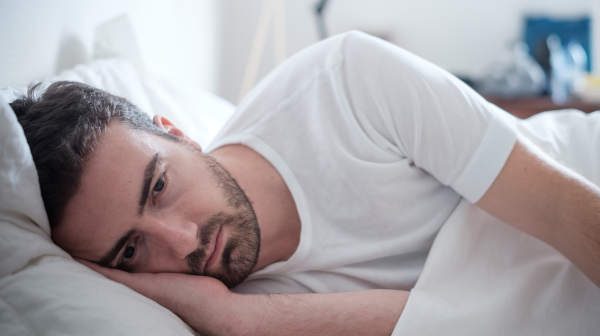Despite the feelings of isolation that come with depression, it is a widespread condition.
More than 16 million Americans experience a major depressive disorder each year, though close to 40% of those people do not seek treatment. Depression affects everybody in their own way, and you may not consider yourself depressed if your symptoms aren’t what you would expect.
“Depression can manifest itself with a variety of symptoms that go beyond sadness,” says Mark Hall, administrator at Lompoc Skilled Nursing and Rehabilitation. “Elderly people, in particular, may have more physical symptoms, like fatigue or trouble sleeping.”
There are a wide variety of physical and mental side effects you might experience if you have depression. Here are a few of the ways this condition can physically affect your body.
Heart attack
The idea that depression hurts your heart might seem silly, but studies show the connection is real. People with heart disease and depression have a higher risk of death than people who just have heart disease. In fact, having depression was the biggest predictor of death for people with heart disease, with twice the risk of dying. The elevated risk was present whether people had depression when they were diagnosed with heart disease or if they were depressed even years after the diagnosis.
Fatigue
People with depression might experience fatigue — and that goes beyond feeling a little tired now and then. Feeling weak, tired and unable to get anything done is a common side effect of depression. Anxiety and depression can sap you of energy, and feeling low on energy may only increase your feelings of depression. Pay attention to how tired you are feeling and whether the symptoms persist. Feeling more than a little tired for days on end could be a signal that it’s time to talk to your doctor.
Insomnia
Depression can really do a number on your sleep patterns, which in turn doesn’t make you feel great during the day. Sleeping too much or not being able to sleep well are both side effects of depression. About 75% of people who are depressed also have insomnia, while about 40% sleep more than usual. Disrupted sleep can significantly impact a person’s quality of life, so don’t hesitate to get help if you find your level of sleep isn’t what you need.
Weight changes
Like your sleep, your weight can also go up or down with depression. Depending on how your body reacts to depression, you may overeat or not eat enough: Overeating and becoming obese can deepen your depression. On the other hand, eating too little can also worsen your mood. Your brain needs the right amount of food as much as your body does. Eating right and exercising can help to relieve some symptoms of depression.
Low sex drive
If you find that you’re just not in the mood day after day, you might be suffering from low libido. A roll in the hay is probably not at the top of your list of favorite things when you feel bad about yourself or don’t have much energy. You might not even realize you are depressed, but losing interest in sex could be a big clue.
Depression doesn’t just affect your mental health. It can take a toll on your body as well. If you are depressed, talk to your doctor about how to get treatment and give your mind and body the care they need.
A version of this article was published by The Daily Herald. It has been republished here with permission.




